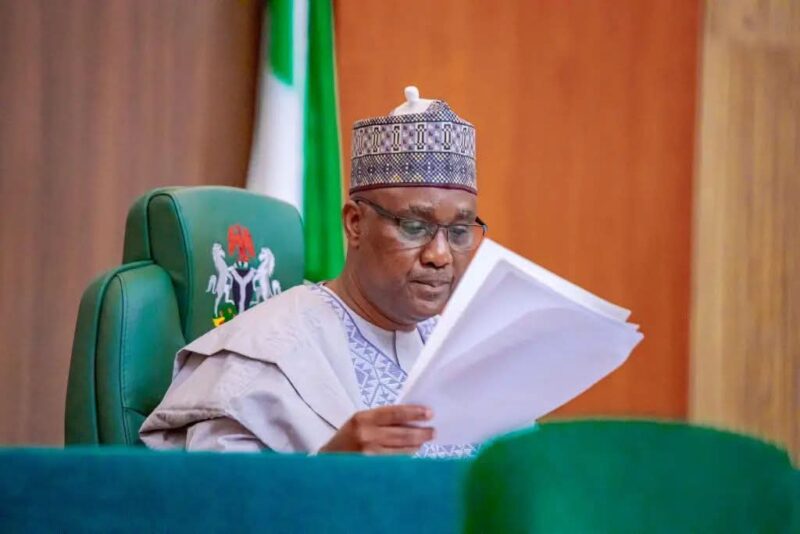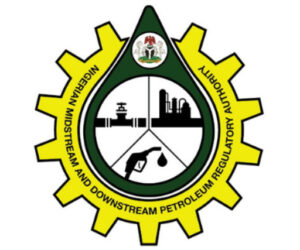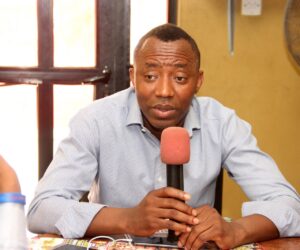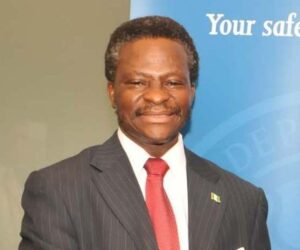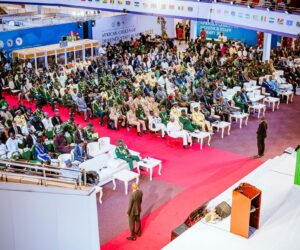

Speaker House of Representatives Tajudeen Abbas has raised concerns over the rising profile of the African continent which he put at $1.8 trillion as of 2022.
To this end, he said there was a need to negotiate fairer terms for loans and whom to borrow from if the continent must borrow at all.
Speaker Abbas said this Monday at the opening of the 11th Annual Conference and General Assembly of the West Africa Association of Public Accounts Committees (WAAPAC) in Abuja.
This concern, according to him, “highlights the urgent need for stronger oversight, transparent borrowing practices, and a collective resolve to ensure that tangible economic and social returns match every naira borrowed. Across Africa, debt levels have reached alarming proportions. By 2022, the continent’s total public debt had reached US$1.8 trillion, with external debt alone expected to surpass US$1 trillion by 2023. Several countries are now in dangerous debt-to-GDP territory: Sudan at 344 percent, Angola at 136.8 percent, Ghana at 84 percent, Kenya at nearly 70 percent, and South Africa above 77 percent.
“In many cases, governments are spending more on servicing debt than on healthcare and other essential services, shrinking the fiscal space available for development. This continental picture makes clear that Africa faces not just a budgetary concern, but a structural crisis that demands urgent parliamentary attention and coordinated reform.
“The countries of the West African sub-region carry the same burden. Distinguished Participants, when we examine the sources of Africa’s external financing, it becomes clear that the weight of debt on our continent is shaped by who we borrow from and on what terms. Today, Western private lenders hold about 35 percent of Africa’s government debt through banks, asset managers, and oil traders. Multilateral institutions, such as the World Bank and the IMF, account for another 39 percent, while bilateral loans from other governments comprise 13 percent.”
“Chinese creditors, despite much of the public debate, hold only 12 percent. To place this in sharper focus, in 2019, bondholders alone represented 27 percent of Africa’s external debt, making them the single largest creditor group, ahead of China at 13 percent. The implications of this structure are far-reaching. A significant share of our national revenues is tied to debt servicing rather than being invested in the things our people need most: roads, schools, hospitals, and innovation. The high cost of commercial loans, coupled with the burden of repayment in foreign currencies, leaves many African economies vulnerable to market shocks.
“This narrows fiscal space, constrains domestic policy choices, and slows the pace of sustainable development. If Africa is to grow stronger, we must not only negotiate fairer terms of borrowing but also rethink our dependence on external finance. We must channel more energy into mobilising domestic resources, fostering intra-African trade, and creating financial instruments that serve the continent’s own development priorities. Only then can we move from vulnerability to resilience, and from dependency to true economic sovereignty. It is also important to stress that effective oversight of public debt requires vigilance, knowledge, and institutional strength. As already noted, debt levels in Africa are rising at a pace that compels us to act with foresight. By empowering our Public Accounts and Finance Committees, we create institutions that can stand as guardians of fiscal discipline and protect our economies from the risks of reckless borrowing.
“This conference provides us with an opportunity to reflect, share experiences, and develop new strategies for debt governance that are both responsible and sustainable. Furthermore, the imperative of the subject matter lies in its cross-border nature. No country in our region can claim immunity from the consequences of debt mismanagement. Unsustainable debt in one country can affect the stability of others, weaken regional trade, and undermine collective development. It is therefore our shared responsibility to use WAAPAC as a platform for solidarity, peer learning, and collective action. The resolutions of this assembly will not only shape national policies but will also reinforce the accountability architecture of the entire sub-region,” the speaker said.
Abbas, who reiterated the 10th House of Representatives’ commitment to transparency and accountability in public finances, said: “We recognize that in Africa, where development challenges remain acute, fiscal responsibility becomes indispensable. This is why the House has taken deliberate steps to strengthen parliamentary oversight mechanisms, improve reporting standards, and ensure that public funds are managed with integrity. In doing so, we reaffirm our conviction that transparency is the cornerstone of good governance and the key to rebuilding public trust.”
While noting that the heavy reliance on costly commercial loans had left African economies vulnerable, he said: “If Africa is to grow stronger, we must not only negotiate fairer terms of borrowing but also rethink our dependence on external finance.
“We must channel more energy into mobilising domestic resources, fostering intra-African trade, and creating financial instruments that serve the continent’s own development priorities.”
…On Nigeria
On Nigeria’s debt status, he said: “Nigeria, recent available data indicate that our debt trajectory has reached a critical point, showing that as at the first quarter of 2025, the total public debt stood at N149.39 trillion, equivalent to about US$97 billion, with domestic borrowing making up 53 percent and external borrowing accounting for 47 percent.
“This represents a sharp rise from N121.7 trillion the previous year, underscoring how quickly the burden has grown. Even more concerning is the debt-to-GDP ratio, which now stands at roughly 52 percent, well above the statutory ceiling of 40 percent set by our own laws. This breach of our debt limit signals the strain on fiscal sustainability.”
…Edun speaks
Earlier in his keynote address, Minister of Finance and Coordinating Minister of the Economy, Wale Edun, said the country’s bold economic reforms were yielding the right results.
“Nigeria is turning the corner. The reforms are delivering measurable impact in terms of investor confidence, reduced spending on fuel imports, greater energy self-sufficiency, and value addition in our economy.”
The minister also said that Nigeria’s debt service-to-revenue ratio dropped to about 60 percent in 2024, while the debt-to-GDP ratio currently stands at 38.8 percent.
While describing this as “a comfortable level compared to global benchmarks,” the minister said revenues grew by 34.7 percent in the first half of 2025 in comparison with the same period last year.
“A sound fiscal framework is not just the responsibility of the executive; it demands partnership, leadership, and rigorous oversight from parliamentarians such as you, especially public accounts and finance committees,” he added.
…Akpabio
Also in a message, Senate President Godswill Akpabio stressed the need for stronger legislative institutions to monitor public borrowing.
He said: “Public debt, when properly managed, is a strategic instrument for financing growth, infrastructure, and sustainable development. However, when left unchecked or shrouded in opacity, it becomes a burden that mortgages the future of our citizens. This is why parliamentary oversight is indispensable.”
Represented by Senator Osita Izunaso, the lawmaker called for the strengthening of constitutional backing by WAAPAC-member nations for Public Accounts Committees to guarantee independence and effectiveness in safeguarding public resources.
In his remarks, Chairman House Committee on Public Accounts Bamidele Salam told delegates that his committee recovered over N200 billion lost revenues within the last one year.
Salam noted that while “it is widely accepted that public debt remains a vital instrument for financing development, especially in emerging economies, it must remain sustainable, transparent and justifiable.”
Also in his speech, WAAPAC President Issouf Traore lauded the Nigeria government for hosting the conference for the first time since the association’s creation in 2009, and also praised the Bola Tinubu administration for initiating reforms aimed at rejuvenating Nigeria’s economy.

